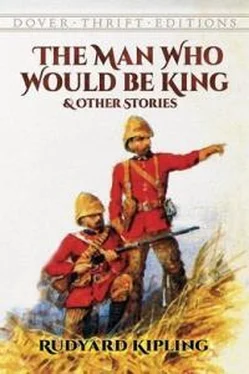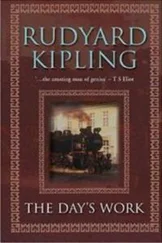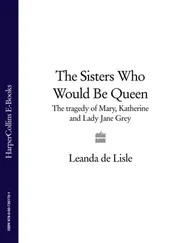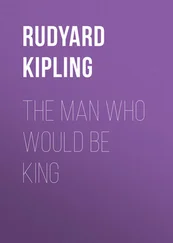Джозеф Киплинг - The Man Who Would Be King
Здесь есть возможность читать онлайн «Джозеф Киплинг - The Man Who Would Be King» весь текст электронной книги совершенно бесплатно (целиком полную версию без сокращений). В некоторых случаях можно слушать аудио, скачать через торрент в формате fb2 и присутствует краткое содержание. Год выпуска: 2014, Издательство: epubBooks Classics, Жанр: Классическая проза, на английском языке. Описание произведения, (предисловие) а так же отзывы посетителей доступны на портале библиотеки ЛибКат.
- Название:The Man Who Would Be King
- Автор:
- Издательство:epubBooks Classics
- Жанр:
- Год:2014
- ISBN:нет данных
- Рейтинг книги:5 / 5. Голосов: 1
-
Избранное:Добавить в избранное
- Отзывы:
-
Ваша оценка:
- 100
- 1
- 2
- 3
- 4
- 5
The Man Who Would Be King: краткое содержание, описание и аннотация
Предлагаем к чтению аннотацию, описание, краткое содержание или предисловие (зависит от того, что написал сам автор книги «The Man Who Would Be King»). Если вы не нашли необходимую информацию о книге — напишите в комментариях, мы постараемся отыскать её.
The Man Who Would Be King — читать онлайн бесплатно полную книгу (весь текст) целиком
Ниже представлен текст книги, разбитый по страницам. Система сохранения места последней прочитанной страницы, позволяет с удобством читать онлайн бесплатно книгу «The Man Who Would Be King», без необходимости каждый раз заново искать на чём Вы остановились. Поставьте закладку, и сможете в любой момент перейти на страницу, на которой закончили чтение.
Интервал:
Закладка:
I was more than a little astonished, and expressed my feelings accordingly.
"It’s true," said Carnehan, with a dry cackle, nursing his feet which were wrapped in rags. "True as gospel. Kings we were, with crowns upon our heads—me and Dravot —poor Dan—oh, poor, poor Dan, that would never take advice, not though I begged of him!"
"Take the whiskey," I said, "and take your own time. Tell me all you can recollect of everything from beginning to end. You got across the border on your camels, Dravot dressed as a mad priest and you his servant. Do you remember that?"
"I ain’t mad—yet, but I will be that way soon. Of course I remember. Keep looking at me, or maybe my words will go all to pieces. Keep looking at me in my eyes and don’t say anything."
I leaned forward and looked into his face as steadily as I could. He dropped one hand upon the table and I grasped it by the wrist. It was twisted like a bird’s claw, and upon the back was a ragged, red, diamond–shaped scar.
"No, don’t look there. Look at me," said Carnehan.
"That comes afterwards, but for the Lord’s sake don’t distrack me. We left with that caravan, me and Dravot, playing all sorts of antics to amuse the people we were with. Dravot used to make us laugh in the evenings when all the people was cooking their dinners—cooking their dinners, and … what did they do then? They lit little fires with sparks that went into Dravot’s beard, and we all laughed—fit to die. Little red fires they was, going into Dravot’s big red beard—so funny." His eyes left mine and he smiled foolishly.
"You went as far as Jagdallak with that caravan," I said at a venture, "after you had lit those fires. To Jagdallak, where you turned off to try to get into Kafiristan."
"No, we didn’t neither. What are you talking about? We turned off before Jagdallak, because we heard the roads was good. But they wasn’t good enough for our two camels—mine and Dravot’s. When we left the caravan, Dravot took off all his clothes and mine too, and said we would be heathen, because the Kafirs didn’t allow Mohammedans to talk to them. So we dressed betwixt and between, and such a sight as Daniel Dravot I never saw yet nor expect to see again. He burned half his beard, and slung a sheep–skin over his shoulder, and shaved his head into patterns. He shaved mine, too, and made me wear outrageous things to look like a heathen. That was in a most mountaineous country, and our camels couldn’t go along any more because of the mountains. They were tall and black, and coming home I saw them fight like wild goats—there are lots of goats in Kafiristan. And these mountains, they never keep still, no more than the goats. Always fighting they are, and don’t let you sleep at night."
"Take some more whiskey," I said, very slowly. "What did you and Daniel Dravot do when the camels could go no further because of the rough roads that led into Kafiristan?"
"What did which do? There was a party called Peachey Taliaferro Carnehan that was with Dravot. Shall I tell you about him? He died out there in the cold. Slap from the bridge fell old Peachey, turning and twisting in the air like a penny whirligig that you can sell to the Amir—No; they was two for three ha’pence, those whirligigs, or I am much mistaken and woful sore. And then these camels were no use, and Peachey said to Dravot—‘For the Lord’s sake, let’s get out of this before our heads are chopped off,’ and with that they killed the camels all among the mountains, not having anything in particular to eat, but first they took off the boxes with the guns and the ammunition, till two men came along driving four mules. Dravot up and dances in front of them, singing,—‘Sell me four mules.’ Says the first man,—‘If you are rich enough to buy, you are rich enough to rob;’ but before ever he could put his hand to his knife, Dravot breaks his neck over his knee, and the other party runs away. So Carnehan loaded the mules with the rifles that was taken off the camels, and together we starts forward into those bitter cold mountainous parts, and never a road broader than the back of your hand."
He paused for a moment, while I asked him if he could remember the nature of the country through which he had journeyed.
"I am telling you as straight as I can, but my head isn’t as good as it might be. They drove nails through it to make me hear better how Dravot died. The country was mountainous and the mules were most contrary, and the inhabitants was dispersed and solitary. They went up and up, and down and down, and that other party Carnehan, was imploring of Dravot not to sing and whistle so loud, for fear of bringing down the tremenjus avalanches. But Dravot says that if a King couldn’t sing it wasn’t worth being King, and whacked the mules over the rump, and never took no heed for ten cold days. We came to a big level valley all among the mountains, and the mules were near dead, so we killed them, not having anything in special for them or us to eat. We sat upon the boxes, and played odd and even with the cartridges that was jolted out.
"Then ten men with bows and arrows ran down that valley, chasing twenty men with bows and arrows, and the row was tremenjus. They was fair men—fairer than you or me—with yellow hair and remarkable well built. Says Dravot, unpacking the guns—‘This is the beginning of the business. We’ll fight for the ten men,’ and with that he fires two rifles at the twenty men and drops one of them at two hundred yards from the rock where we was sitting. The other men began to run, but Carnehan and Dravot sits on the boxes picking them off at all ranges, up and down the valley. Then we goes up to the ten men that had run across the snow too, and they fires a footy little arrow at us. Dravot he shoots above their heads and they all falls down flat. Then he walks over them and kicks them, and then he lifts them up and shakes hands all around to make them friendly like. He calls them and gives them the boxes to carry, and waves his hand for all the world as though he was King already. They takes the boxes and him across the valley and up the hill into a pine wood on the top, where there was half a dozen big stone idols. Dravot he goes to the biggest—a fellow they call Imbra—and lays a rifle and a cartridge at his feet, rubbing his nose respectful with his own nose, patting him on the head, and saluting in front of it. He turns round to the men and nods his head, and says,—‘That’s all right. I’m in the know too, and these old jim–jams are my friends.’ Then he opens his mouth and points down it, and when the first man brings him food, he says—‘No;’ and when the second man brings him food, he says— ‘No;’ but when one of the old priests and the boss of the village brings him food, he says—‘Yes;’ very haughty, and eats it slow. That was how we came to our first village, without any trouble, just as though we had tumbled from the skies. But we tumbled from one of those damned rope–bridges, you see, and you couldn’t expect a man to laugh much after that."
"Take some more whiskey and go on," I said. "That was the first village you came into. How did you get to be King?"
"I wasn’t King," said Carnehan. "Dravot he was the King, and a handsome man he looked with the gold crown on his head and all. Him and the other party stayed in that village, and every morning Dravot sat by the side of old Imbra, and the people came and worshipped. That was Dravot’s order. Then a lot of men came into the valley, and Carnehan and Dravot picks them off with the rifles before they knew where they was, and runs down into the valley and up again the other side, and finds another village, same as the first one, and the people all falls down flat on their faces, and Dravot says,— ‘Now what is the trouble between you two villages?’ and the people points to a woman, as fair as you or me, that was carried off, and Dravot takes her back to the first village and counts up the dead—eight there was. For each dead man Dravot pours a little milk on the ground and waves his arms like a whirligig and, ‘That’s all right,’ says he. Then he and Carnehan takes the big boss of each village by the arm and walks them down into the valley, and shows them how to scratch a line with a spear right down the valley, and gives each a sod of turf from both sides o’ the line. Then all the people comes down and shouts like the devil and all, and Dravot says,—‘Go and dig the land, and be fruitful and multiply,’ which they did, though they didn’t understand. Then we asks the names of things in their lingo—bread and water and fire and idols and such, and Dravot leads the priest of each village up to the idol, and says he must sit there and judge the people, and if anything goes wrong he is to be shot.
Читать дальшеИнтервал:
Закладка:
Похожие книги на «The Man Who Would Be King»
Представляем Вашему вниманию похожие книги на «The Man Who Would Be King» списком для выбора. Мы отобрали схожую по названию и смыслу литературу в надежде предоставить читателям больше вариантов отыскать новые, интересные, ещё непрочитанные произведения.
Обсуждение, отзывы о книге «The Man Who Would Be King» и просто собственные мнения читателей. Оставьте ваши комментарии, напишите, что Вы думаете о произведении, его смысле или главных героях. Укажите что конкретно понравилось, а что нет, и почему Вы так считаете.












